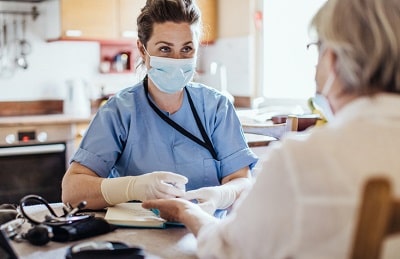 How to Check HGH Levels
How to Check HGH Levels
Due to the many hormonal fluctuations that occur as we age, it often becomes important to learn how to check HGH levels as you get older. In a perfect world, all adults would check their human growth hormone, testosterone, progesterone, estrogen, and DHEA levels in their mid-twenties. That would give them a baseline look at when critical hormones were at their best levels. This baseline would serve as a target in later years for hormone replacement therapy. It would also help hormone doctors know how quickly or slowly the individual’s hormone levels decline with age.
Blood analysis is the only legitimate way to check HGH levels. Urine or saliva tests do not provide accurate readings on human growth hormone levels.
In addition to getting blood hormone measurements, the doctor will also review your medical history and physical examination reports to determine if any underlying conditions are contributing to your symptoms.
For accurate readings, you will need to fast before your test. Here are the requirements necessary to ensure successful diagnostic testing:
- Stop eating and drinking everything except for water at midnight the night before your blood test
- Do not take vitamin B7 (biotin) during the 12 hours before the blood test
- Discuss which prescription medications you should stop taking before the blood test with your hormone specialist
- Go to the laboratory first thing in the morning before eating anything to have a sample of blood collected
You will be able to eat once you finish at the lab, which will only take a few minutes to complete the blood sample collection.
Blood sample collection first thing in the morning is the accurate way of measuring HGH levels.
What Blood Tests Do I Need to Check HGH Levels?
Checking to see if you have adult growth hormone deficiency means measuring a variety of critical blood levels. Low HGH levels can also be caused by some other medical conditions, so the doctor will want a clear overview of what is happening in your body.
For how to check HGH levels, the doctor looks at a hormone called insulin growth factor 1. The reason the IGF-1 blood test is used to measure HGH levels is that it is a relatively constant hormone level. Human growth hormone secretion occurs in pulsatile bursts on average of once every 3 to 5 hours. Once HGH enters the bloodstream, it rapidly races towards the body’s many growth hormone receptors. Once the HGH molecules bind to receptors, its presence becomes absent from the bloodstream until the next burst. The timing of these bursts is done in an HGH stimulation test used to detect childhood HGH deficiency. It is rarely necessary to run this test in adults. Instead, because HGH stimulates the liver’s production of IGF-1, it is the better marker to determine if an adult has low HGH levels.
Now that you know what blood test is used to check HGH hormone levels, here are the other panels the doctor will run:
- CMP – the comprehensive metabolic panel measures electrolytes, glucose, calcium, electrolytes, kidney, liver, and protein markers
- Lipid Panel – cholesterol and triglyceride levels
- PSA (men) – prostate cancer screening measures prostate-specific antigen levels
- Testosterone Total – testosterone deficiency may be the cause of symptoms similar to HGH deficiency
- Estradiol – most common form of estrogen and may signify a hormonal imbalance
- CBC – complete blood count and rules out leukemia
- Free T4 (Direct) – checks thyroid hormone levels
- TSH – measures thyroid stimulating hormone levels
- Testosterone Free (females and sometimes in males) – checks free testosterone levels
The doctor may also order progesterone and DHEA-S levels in women and free testosterone and FSH (follicle-stimulating hormone) and LH (luteinizing hormone) levels in men.
These blood tests enable the doctor to determine if growth hormone deficiency is the cause of your symptoms and concerns.
The hormone specialist runs comprehensive blood tests to determine if you have a growth hormone deficiency.
Can I Check My HGH Levels at Home?
We are often asked can you check HGH levels at home because of the plethora of companies that offer at-home lab testing kits. This is not a test that falls into that category. A tiny finger prick will not provide the vials of blood necessary for testing.
Also, since most at-home lab tests check saliva, and we previously stated in our first section of how to check HGH levels that saliva is not a viable testing option, these tests do not work.
HGH deficiency testing is not something you can do at home. You must have a sample of blood collected at a lab or in a doctor’s office for testing.
How Do I Arrange for an HGH Blood Test?
The best way for how to check HGH levels is to contact a hormone replacement therapy specialist. You want to ensure that a doctor with extensive experience in hormone balancing is the one diagnosing your condition. When you contact a hormone clinic, you will first complete an initial consultation to determine if testing is advisable. If it is clear that the problem is not hormonal, you might be referred to a different type of specialist. However, if hormone or other blood levels may be involved, then the next step is the scheduling of blood testing at a local lab.
Here at our hormone clinic, we conduct these consultations free of charge by telephone. The time and money savings to you are considerable. To proceed to the next step, we locate a laboratory near you and arrange for your test. All you have to do is show up at the appointed time. The results come straight to our clinic for our doctor to review.
For additional information on how to check HGH levels, please contact our hormone clinic.
Initial telephone consultations by phone are always free of charge. Call today to learn how to arrange for your HGH blood test at a local lab.


 How to Check HGH Levels
How to Check HGH Levels